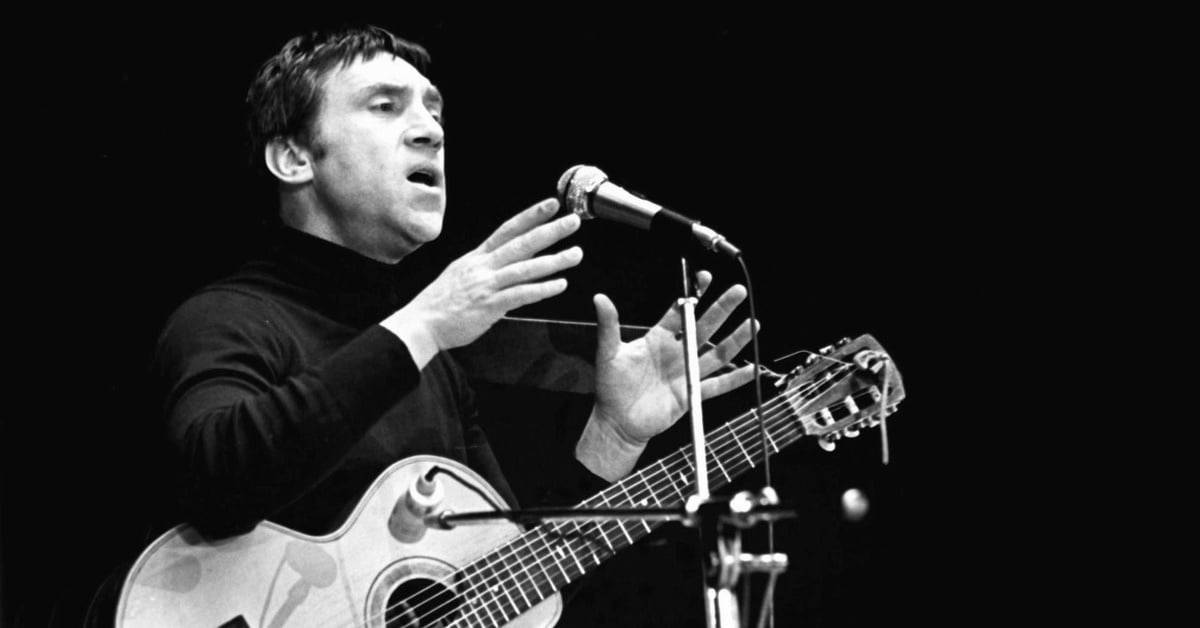A popular quote from Vladimir Vysotsky’s answer to Western journalists is often used as a patriotic argument: they say, one cannot wash dirty linen in public, appeal to the ECHR, or in any way grist to the mill of foreign opponents of the Russian government. We checked whether Vladimir Semyonovich said this.
This is how this story is presented on the Instagram information portal kremlin_russian:
“Once Vladimir Vysotsky was asked by Western journalists about his attitude towards the power of the USSR. He replied: “I have grievances against the authorities of my country, but I will not resolve them with you.” They didn’t ask him this question again.”
The phrase has become popular demotivator on social networks. In addition, it can be found in publications of the TV channel “World", resources "Rambler", "Tsargrad TV", "Sight", KM.RU, "Russian Bridge" The director of the Institute of Russian Abroad also brought her Sergey Panteleev in his interview.
The earliest mentions of the quote on the Internet refer to May 2015. A little strange for a bright line from the lips of a cult personality, isn’t it? At the same time, the phrase obviously gained popularity very quickly, since already in July it was included in the article “Gossip and denunciation: ethical analysis", published in the international scientific journal "Symbol of Science". Also in 2015, an entire paragraph was dedicated to her in the work “Dynamics of the precedent world of a creative personality in the discourse of new media: statement of the problem", published in the Siberian Philological Journal:
“So, Vysotsky’s answer to a question from Western journalists about his attitude towards the Soviet authorities (“I have grievances against the authorities of my country, but I will not resolve and discuss them with you”) has become an argument in many modern political Internet discussions. For example, Vysotsky, as the moral ideal of an oppositionist, is contrasted with A. Navalny, publishing on one page the above words of the poet and statement of our contemporary: "The opposition has the right to appeal to other states to fight the tyrannical regime." In this post, the user’s communicative intention is realized exclusively at the implicit level of the text due to the “duel” of quotes behind which their authors stand. The user’s denial of the political position and, probably, the personality of A. Navalny is expressed through an appeal to the unconditional authority of the poet, perceived in various strata of society as a freedom fighter.”
As we see, as soon as it appeared on the Internet, the “Vysotsky quote” immediately took on the role that it plays today: educational, with a certain moral attitude. However, it is still not clear whether it existed in pre-Internet times. There is nothing similar in the available printed literature. Including on foreign languages.
At the same time on one website, where the quote in question is included in the epigraph, there is the following passage about a certain American interview with Vysotsky:
“The interview is quite interesting, evoking associations with a fencing match. Presenter D. Rutter... attacks, poses pointed questions, trying to get at least some anti-Soviet answers from Vysotsky. Vysotsky defends himself and answers in such a way that even the most zealous KGB officer would not have found anything to blame him for.”
Vysotsky gave the above-mentioned interview in July 1976 in New York to CBS journalist Dan Rutter. It aired much later, on February 20, 1977. From text The conversation shows that the American journalist really asked the Soviet poet rather pointed, provocative questions. But is there at least one of Vysotsky’s answers that is similar to our quote? There are no truly similar ones. The only thing that can raise slight doubts is the following fragment:
“Dan Rutter: It may not be true, but I think some people in the USSR are worried whether you will come back. Am I wrong?
Vladimir Vysotsky: Why?! Come on! This is the fourth or fifth time I've left and I always come back. This is funny! If I were a person who is afraid to be allowed out of the country, this would be a completely different interview. I sit calmly in front of you, calmly answer your questions. I love my country and don't want to harm it. And I never will.
In fact, what the two quotes have in common is only a reluctance to cause harm to the country: in one case, expressed implicitly, in the other, explicitly, but most likely relating not to the interview, but to the prospect of becoming a defector. And nothing about claims. It is quite possible that this fragment (and the general mood around the corresponding interview with Vysotsky) served as the source of someone’s fantasy. However, today there is not a single serious (or at least old enough) source that would confirm that Vladimir Semyonovich Vysotsky ever said something similar.
Fake
Read on topic:
1. Interview with Vladimir Vysotsky for the CBS television program “60 Minutes”.
3. Documentary film “Vysotsky in America.”
If you find a spelling or grammatical error, please let us know by highlighting the error text and clicking Ctrl+Enter.







